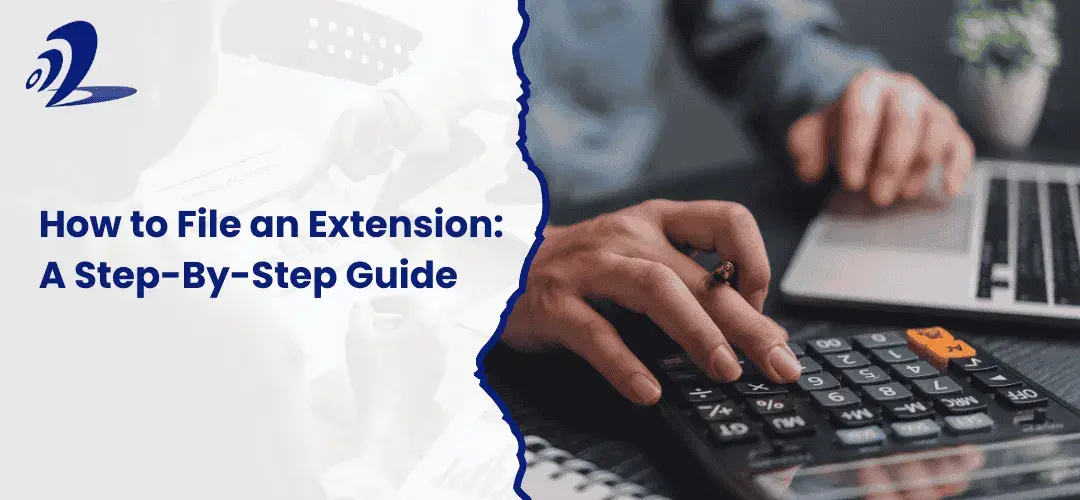Filing taxes can be daunting for many individuals and small business owners, especially when deadlines loom. If you need more time to prepare your tax return, filing for an extension can be a practical solution. In Monrovia, CA, where the tax landscape can be complex, understanding how to file an extension is crucial for ensuring compliance and avoiding penalties.
An extension allows you to postpone the deadline for filing your tax return, giving you additional time to gather necessary documents and ensure accuracy. However, it’s important to note that an extension to file is not an extension to pay any taxes owed. While you can delay submitting your return, you must estimate and pay any taxes due by the original deadline to avoid interest and penalties.
This guide will walk you through filing a tax extension, including how far out it pushes your deadline, the necessary forms, and the differences between filing and payment extensions. Whether you’re a small business owner seeking accounting services or an individual looking for bookkeeping services, understanding the extension process can help you manage your tax obligations more effectively.
How far out does an extension push your deadline?
When you file for a tax extension, it typically pushes your filing deadline by six months. For most taxpayers, this means that if the original deadline is April 15, your new deadline will be October 15. This extension applies to both individual taxpayers and small businesses, allowing them to take the necessary time to prepare their returns accurately.
However, one must note that if any tax refund is filed, the filing deadline is still extended, but the taxes are due by the usual deadline. If you anticipate owing taxes, you should estimate your tax liability and pay by April 15 to avoid incurring penalties and interest.
For small business owners in Monrovia, CA, utilizing accounting and tax services can be beneficial in estimating your tax obligations accurately. Professional accountants can help you assess your financial situation and determine how much you should pay to avoid surprises when the tax deadline arrives.
Additionally, if you are using startup bookkeeping services for small businesses, they can assist you in organizing your financial records, making it easier to prepare your tax return when the time comes. You can meet your tax obligations without unnecessary stress by staying organized and proactive.
In summary, filing for a tax extension typically pushes your deadline by six months, but paying any taxes owed by the original deadline is crucial to avoid penalties.
What form is used for filing an extension?
To file a tax extension, you must use Form 4868 for individual taxpayers and Form 7004 for businesses. Form 4868 is the Application for Automatic Extension of Time to File U.S. Individual Income Tax Return. In contrast, Form 7004 is used for businesses to request an extension for specific business tax returns.
When filling out Form 4868, you must provide basic information such as your name, address, Social Security number, and an estimate of your total tax liability. This form can be filed electronically or by mail, and it’s essential to ensure that it is submitted by the original tax deadline to avoid penalties.
For small businesses, Form 7004 allows you to request an extension for various business tax returns, including partnerships, corporations, and S corporations. Like Form 4868, you must provide your business information and an estimate of your tax liability.
Hiring the best professional accountant for small business can be invaluable if you need clarification or assistance. They can help you complete the necessary forms accurately and meet all deadlines. Additionally, if you are looking for a bookkeepers for small business, they can assist in maintaining your financial records, making it easier to estimate your tax obligations.
In conclusion, Form 4868 is used for individual tax extensions, while Form 7004 is for business extensions. Both forms require basic information and an estimate of your tax liability.
How do you file a tax extension?
Filing a tax extension is straightforward but requires careful attention to detail to ensure compliance. Here’s a step-by-step guide on how to file a tax extension:
Determine Your Eligibility: Before filing for an extension, ensure that you are eligible. Most taxpayers can file for an extension, but specific rules may apply to certain situations.
Estimate Your Tax Liability: Calculate your estimated tax liability for the year. This step is crucial because you must pay any taxes owed by the original deadline to avoid penalties. If you need help estimating your taxes, consider consulting with an accounting business or a professional accountant for small businesses.
Complete the Appropriate Form: If you are an individual or a business, complete Form 4868 or Form 7004. Ensure that all information is accurate and complete.
Submit the Form: You can file your extension electronically through the IRS e-file system or by mailing the completed form to the appropriate address. If you file electronically, you will receive confirmation of your submission, which can provide peace of mind.
Make a Payment: If you owe taxes, pay your estimated tax liability by the original deadline. You can do this through various methods, including electronic funds transfer, credit card payments, or mailing a check with your extension form.
Keep Records: After filing your extension, keep a copy of the submitted form and any payment confirmations for your records. This documentation can be helpful for any questions or issues later on.
Prepare Your Tax Return: Use the additional time granted by the extension to gather all necessary documents and prepare your tax return accurately. If you are utilizing bookkeeper services, they can assist you in organizing your financial records, making the tax preparation process smoother.
File Your Tax Return: Remember that the extension only applies to the filing deadline, not the payment deadline. Ensure you file your completed tax return by the extended deadline to avoid penalties.
By following these steps, you can successfully file a tax extension and alleviate some of the stress associated with tax season. If you need further assistance, consider contacting a professional accountant for a small business or a bookkeeper near me to help guide you through the process.
Is there a difference between filing and payment extension?
Yes, there is a significant difference between filing and payment extensions. A filing extension allows you to postpone the deadline for submitting your tax return, typically by six months. This means you have more time to prepare your return accurately without the pressure of the original deadline.
On the other hand, a payment extension refers to the ability to delay the payment of any taxes owed. However, it’s important to note that the IRS does not grant a payment extension automatically. If you owe taxes, you must still estimate and pay your tax liability by the original deadline to avoid incurring penalties and interest.
Understanding this distinction is crucial for small business owners in Monrovia, CA. Utilizing accounting and tax services can help you navigate these requirements effectively. Professional accountants can assist in estimating your tax obligations and ensuring that you make timely payments, even if you file for an extension.
Additionally, if you are using startup book keeping services, they can help you maintain accurate financial records, making it easier to determine how much you owe and when payments are due. By staying organized and informed, you can manage your tax obligations more effectively and avoid unnecessary penalties.
In summary, a filing extension gives you more time to submit your tax return, while a payment extension requires you to pay any taxes owed by the original deadline. Knowledge of these differences will aid in tax planning, and you need to know the playing ground.
FAQs
Is everyone eligible for a tax extension?
Most taxpayers are eligible for a tax extension, but specific rules may apply based on individual circumstances or business types.
Should you file a tax extension?
Filing a tax extension can be beneficial if you need more time to prepare your return accurately, but ensure you pay any taxes owed by the original deadline.
Is there a fee for filing a tax extension?
It costs nothing to file a tax extension; however, you must pay any amount due by the expected due date to avoid penalties and interest charges.


